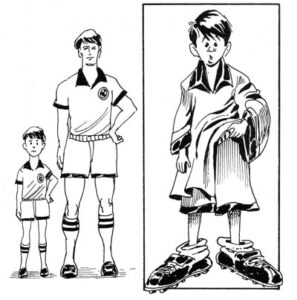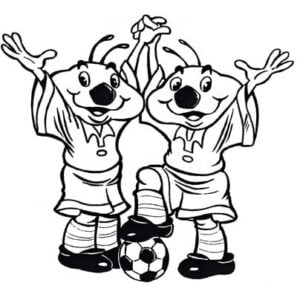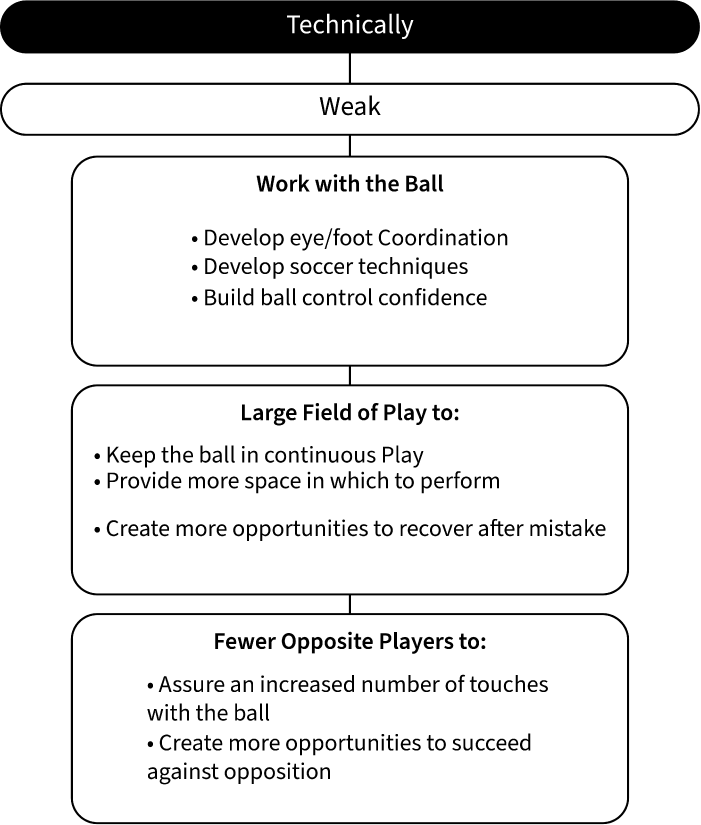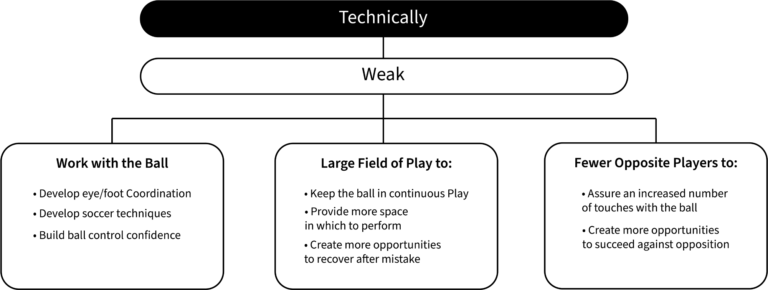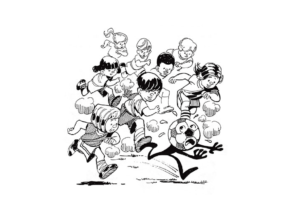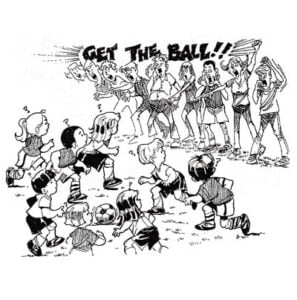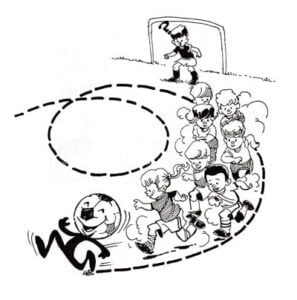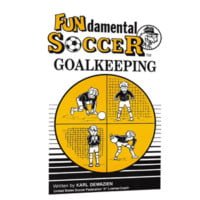U-6 Players
Learn About Your U-6 Players
The First Priority of Successful Youth Coaches World-Wide
“Our parents bring us to you to play a game. Even though we may look like pros in our uniforms, we’re not mini-adults; we’re children!
“We don’t have a soccer background. We need to learn from others by seeing and imitating. You are our role model and must teach us.
“We have a very difficult time cooperating with others. Self-centeredness and boastfulness are beginning to decline, but we enjoy group play, showing a preference for small groups.
“We are interested in learning. Many of us know our right from our left, and playing soccer is stimulating for us. We like structure and are willing to apply rules. We’re aware of the rules governing cooperative play, but it’s best to use simple rules only.
“Remember, we had to crawl, walk, run, jump, and hop in that order, so we will develop our soccer skills the same way.
“In general, we will ‘play at’ soccer by imitating rather than actually ‘playing’ soccer. The fun lies in us just kicking the ball rather than passing to a teammate or shooting at the goal.
“The opportunity to experiment with techniques is more important to us than success in the technique. We do not understand the concept of winning/losing, and will therefore believe everyone is a winner!”
Sincerely,
Your U-6 Player
To ensure their first exposure to the game is enjoyable,
expect the following in game situations:
FIRST ATTACKER
Player with the Ball
- They will attack both goals. They will release the ball too early – they may not release the ball at all.
- They think that the game ball is their own ‘toy.’ Most children will want to get possession of the ball to score.
- They’ll react too quickly to the flight of the ball.
- They may shoot toward both goals.
- Don’t expect any fakes or feints.
- They can’t find teammates to pass to.
ATTACKING TEAM
Team with the Ball
- They will ‘bunch’ around the ball and run in the direction the ball is traveling!
- They will not understand the concept of space, so any encouragement to ‘spread out’ is absolutely pointless.
- They will happily chase after the ball while attacking and defending.
- They will run and change direction in short bursts until they get tired.
- They cannot, and will not, look for space to run into.
FIRST DEFENDER
Player closest to the Ball
- They will defend both goals. They will kick at the ball with all their might – they may not kick the ball at all.
- They think that since the game ball is their own ‘toy’, they must get it back.
- They will chase after the ball because adults are telling them to “get the ball!”
- During the game, it is more like ‘finding’ the ball.
DEFENDING TEAM
Team without the Ball
- They are not defending a goal, but happily chasing after the ball.
- They may simply watch the ball, or chase after it in the same way, as if attacking.
- They will happily chase after the ball while attacking and defending.
- They will run and change direction in short bursts until they get tired.
It takes Time to Learn Everything
At this age, interest in playing soccer needs to be developed in an enjoyable way, so that the children will eventually end up loving to play the game.
It is a fact that coaching younger players can be especially challenging. Keep in mind that U-6 players can be impatient and easily distracted. This should be expected. Don’t get frustrated. You can reach and teach all players with the right approach.
The FUNdamental SOCCER Practice is a youth soccer coaching approach that has been proven to work with children. No More: Drills, Eye-foot coordination games, Soccer related games, Lines, Laps, and Lectures. It uses a methodology that is often at odds with the traditional methods but really works with children.

